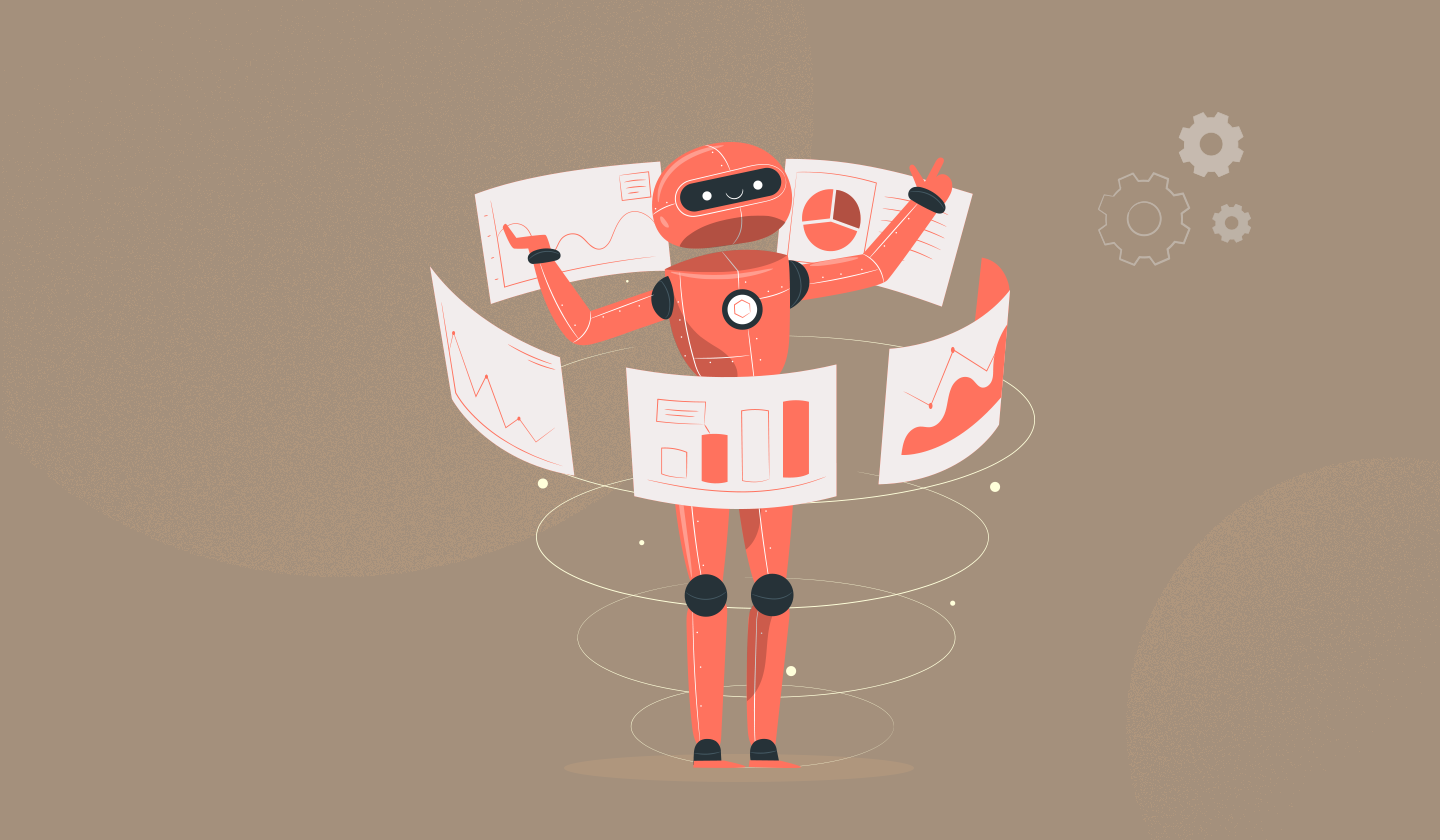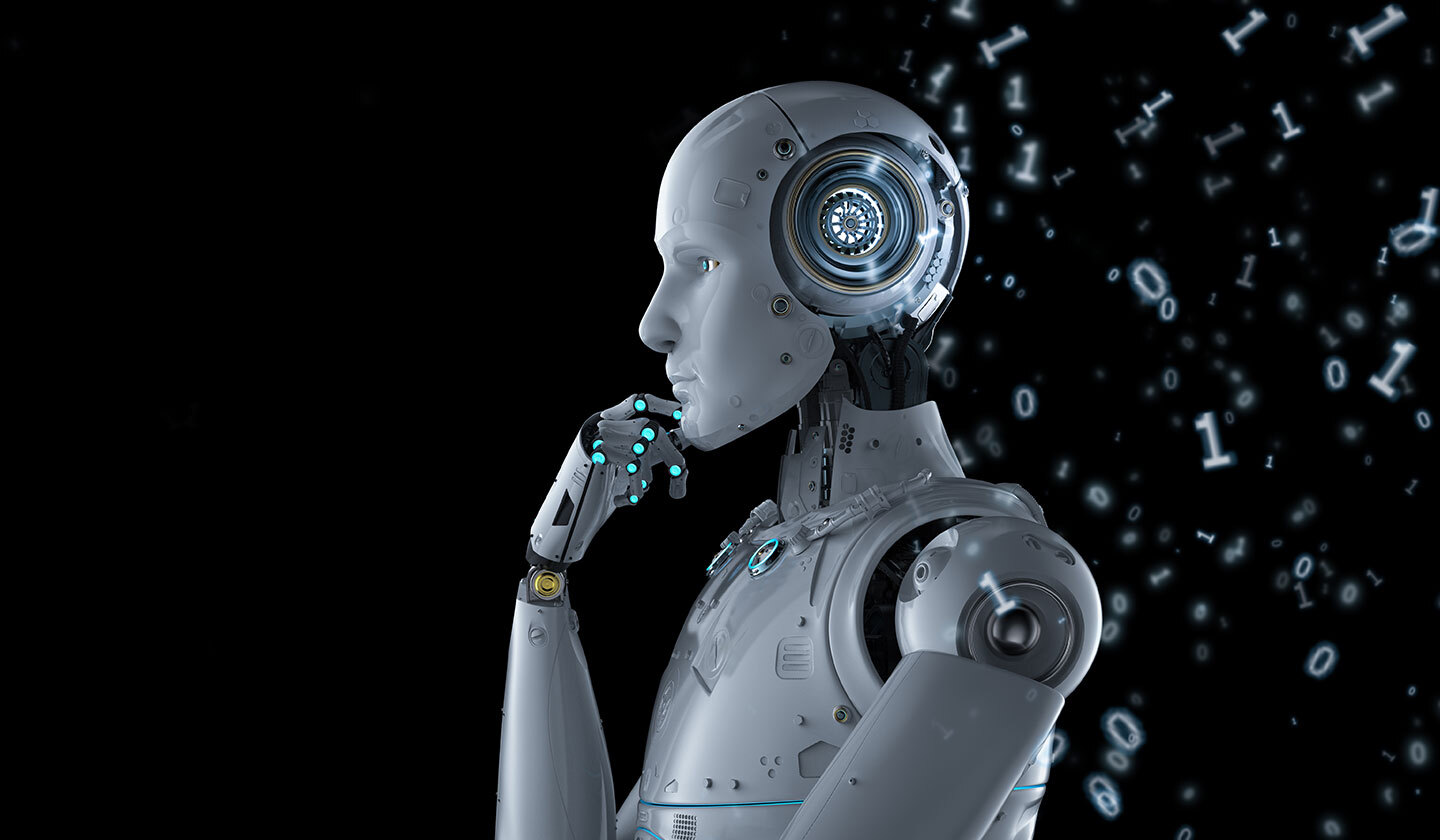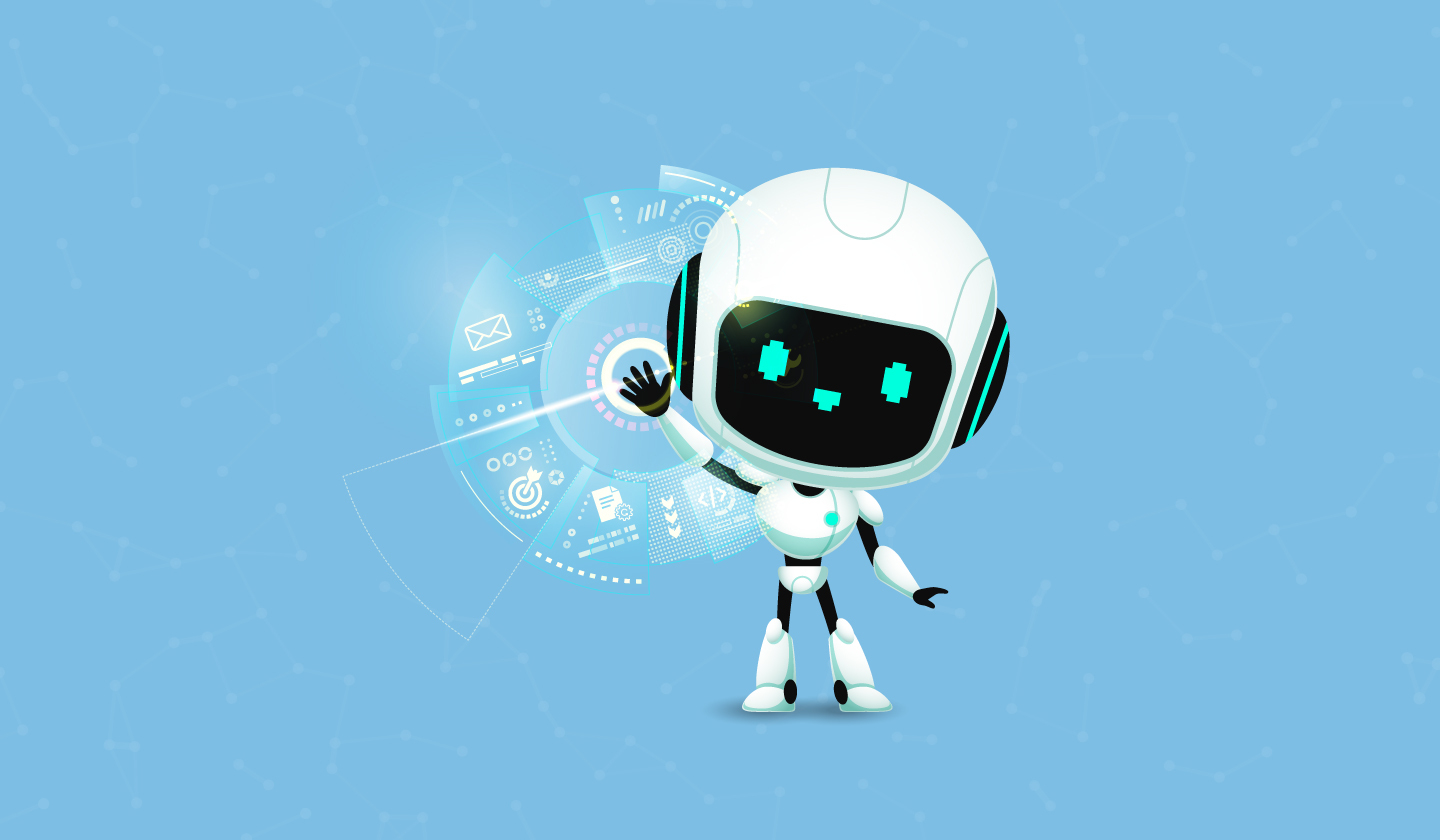Artificial intelligence taking over the world and wiping off human labor is not a new phenomenon. However, the hype has seen a new spike with the introduction of groundbreaking tools like ChatGPT.
AI, will it help us or replace us?
The question above has taken over every individual, irrespective of the industry or field they are a part of. However, AI is likely to make a bigger impact for marketing than most other fields of work.
AI in marketing will revolutionize operations and challenge how marketers think, approach, and plan their marketing goals and implement strategies.
Marketers are always concerned about understanding their customers, and with the help of AI, your job gets easier. The use of artificial intelligence will allow you to use vast amounts of data to tailor marketing strategies making them more targeted for your customers than ever.
What is the Role of AI in Marketing?
AI is impacting different marketing aspects in unique ways.
Technology is becoming your ultimate marketing enabler. For example:
predictive analytics - to quickly process vast amounts of data
natural language processing - to identify trends, and
machine learning - to make more efficient decisions.
AI will help you anticipate your customer's next move and orchestrate marketing strategies accordingly.
Using more complex methods than basic programming, AI learns to deliver better results as it improves over time, just like humans. This is coupled with machine learning, which in marketing is key to understanding customer purchase habits and organizing unstructured data to help accordingly.
Then we have deep learning, which focuses on more targeted components which include image classification, voice recognition, etc. Deep learning helps create automated chats and auto-creating visual content.
All these AI technologies combined are making marketing more powerful and targeted. Hence, equipping yourself with AI tools is already your need.
Benefits of AI in Marketing

You must be wondering what results the use of AI brings.
Well, you'll be surprised to learn the benefits of AI in marketing and the crazy boosts it provides to your numbers. Let's get into some of those details:
Increased ROI
Smart AI tools help marketers gather the right targeted information for specific campaigns. This lessens the net marketing spend as you won't be spending on irrelevant data collection methods.
AI will further provide deep insights into customer behavior from huge data sets, helping you make real-time decisions. It boosts your ROI by narrowing down your target audience and increasing conversion chances.
Real-time personalization
Personalization begins with understanding your customer's preferences and then providing them with a solution accordingly. AI helps you gather demographics, location, and buying history, helping you craft personalized marketing campaigns in real-time.
With the help of predictive analysis, AI understands customer behavior and provides you with relevant suggestions. This is the same technology that Netflix (a leading OTT platform), Google (a search engine), and Instagram (a social media platform) use for suggestions.
Faster decision making
With AI, you no longer need to wait until the end of a campaign to make decisions. AI allows you to use real-time data and make more informed decisions with the help of machine learning.
You no longer have to surf through sheets of data as AI brings everything you need to make decisions.
Enhanced measurement and analysis
Data analysis and measurement are great sources for improving targeted marketing campaigns. It helps you track success and failures back to specific campaigns allowing you to choose the right approach for your future marketing plans.
Without AI, huge amounts of jumbled data can take you to misleading endpoints. Consequently, causing trouble when sorting out future plans.
Challenges of AI in Marketing
When dealing with AI in Marketing, you need to know that you're encountering something still in its early stages. AI is in its evolution phase, and with all the ways it is going to facilitate you, it may put you through challenges that might be previously unknown.
So, be ready to face hurdles without knowing whether you need to jump over or crawl under. Here's what AI needs from you:

Requires training
This is not about training your workforce to work with AI technologies. That's a whole different challenge. Here, we are talking about training your AI tools to align with your marketing goals. Unfortunately, that does not work like a switch you can flip on and get your desired results.
AI requires training and time, just like any human, to understand the overall context, trends, customer behavior, and build expertise. Only with the right training can you expect AI to bring the expected results.
Needs high-quality data
Accurate and quality data is the key component for efficient training of your AI. You need to gather data from the right sources and ensure it is reliable enough to train your AI tools in the right direction.
Using poor quality data, you might train an incompetent AI that does not understand your customer needs.
Privacy breaches
The modern world end-users are well aware of companies using their data, and regulatory authorities are right there to support them. When gathering data, you need to comply with the GDPR regulations to avoid any breaches that can put you in trouble.
Applying best practices
Even with its rapid growth, AI is still a relatively new concept in marketing. Therefore, when implementing AI in your business' marketing, you may have to identify the best practices for yourself.
Notable Use Cases of AI in Marketing

There are many ways AI can sort your marketing challenges for you. Some of the notable and most frequently implemented use cases of AI in digital marketing are listed below for your assistance:
Data analysis
Data analysis is the core use case of AI that makes digital marketing easier. Machine Learning helps with gathering and analyzing campaign-relevant data that would otherwise be a tedious manual task.
Automated decision-making
Deep data analysis allows AI to help make decisions for you. Based on the data gathered, AI suggests what strategies and methods could be used to meet their end goals.
Natural Language Processing (NLP)
Natural language refers to the everyday language that you and your customers speak.
Before AI, computers were known to understand and communicate in their language of bits and binaries. However, AI allows them to create and use natural language to generate content, empower chatbots, and offer personalized experiences.
Media Buying
It takes a lot of research and time to find the right media place to feature your content and ads. AI assists by finding you the relevant media spaces to buy and feature content for your target audience.
Content generation
Content generation AI tools are getting more common by the day. These tools provide error-free content suitable for your blog and social media needs. They are capable of helping you to create content at scale and meta-descriptions as well.
Real-time personalization
You may have witnessed changing customer experiences in emails, landing pages, and websites as per customer preferences. AI helps generate real-time personalized content by analyzing customers' past purchases, clicked links, or other actions.
How AI Impacts Your Marketing Strategy?
With the ability to assist multiple marketing factors, AI changes the dynamics of your marketing goals. By taking over most of your monotonous and time-consuming tasks, AI lets you be more productive. 44% of industry leaders are known to use automation to boost their productivity.
Your marketing strategy will now see a new day with what AI can target and deliver. You will now be able to analyze bigger datasets much faster, allowing you to have more accurate results at scale.
While AI increases your access to information, you may have to justify the data you are using. Being wary of limitations against the data you are accessing would be important to the authenticity of your marketing goals.
With the increased scope of handling data, you may also now need more data experts on your team. Hiring more data scientists will be a part of your marketing strategy moving forward with AI.
How Can You Use AI for Digital Marketing?
Digital marketing is a rapidly growing field, with AI bringing revolution to each of the field's categories. Here's how AI has changed how marketers approach each of the following digital marketing types:
Social media
Social media marketers are now using AI tools to automate content scheduling, audience engagement, analytics tracking, and other time-intensive tasks. It also helps track user behavior to assist with relevant content creation.
Emplifi and Lately are two amazing tools to help you revolutionize your social media campaigns with AI assistance.
Email marketing
Being one of the most high-performing digital marketing methods, Email marketing was in much need of the AI revolution. Thanks to AI, designing, sending, tracking, and personalizing emails has become a walk in the park.
Related: 11 Ways to Use AI in Email Marketing for More Conversions
Unlayer's AI features allow you to save a lot of time designing emails. It offers features like smart headings, smart buttons, and an AI-powered image generator to help you with unique and original email copy .
Content creation
Content creation has been the most tedious task known to marketers. It requires a lot of time and effort with quality language skills. AI tools are now capable of writing full-length blog posts, social media descriptions, and content you need for other purposes.
Tools like Jasper and ChatGPT have revolutionized the content creation process with the ability to deliver results in minutes.
SEO
SEO is another aspect of digital marketing that AI has brought under its influence. All SEO tools now use AI to make things easier for search engine optimization professionals. Mainly, actions like traffic analysis, keyword research, and backlink analytics are supported. Additionally, the new wave of programmatic SEO has further accelerated the use of AI in this field.
AI in SEO is also used for writing keyword-powered content and writing meta descriptions. Some leading tools in this area are SEMRush and Surfer SEO. Other types of SEO tools are backlink outreach tools. One of the best tools in this area is Influno.
PPC
Google ads, Amazon, and Bing all provide you AI help when launching your Pay-per-click campaigns. They offer support with bidding algorithms to help you avoid overbidding and limit your bids to a specific budget.
AI also helps keep your bids relevant, so your ads feature at the right places improving your ROI. For example, this can result in growing your sales on Amazon and other platforms.
Final Words
Your marketing strategies and challenges are bound to change with artificial intelligence making its mark in the modern business world. With AI in marketing, you can now revolutionize your goals and targets and enhance your marketing on a scale wider than you imagined before.





